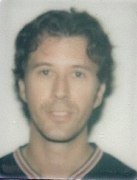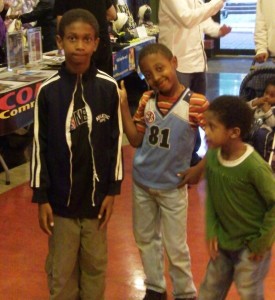Our School sheds light on the story of Canada’s first public Africentric School
By Shaundra Selvaggi
Director-producer Aaron Weiss admits that when he first heard of plans for an Africentric school in Toronto, he wasn’t exactly supportive.
“To be honest, I had a visceral reaction that this is ridiculous in a multicultural society. But then I felt the responsibility to educate myself and research a little bit. And it’s amazing what happens when you do that.”
What he uncovered inspired him to pour all his savings into writing, producing and directing Our School, a film documenting the efforts of community activists Donna Harrow and Angela Wilson to establish the country’s first state-funded africentric school and the many opposing challenges faced along the way.
Weiss said he was disturbed by what seemed like an unfair argument playing out in the media. His documentary references the media’s use of the terms ‘black-only’ and ‘segregationist’ as opposed to ‘africentric’ and the many news reports that failed to mention that all students were welcome to attend. For Weiss, the school became a human rights issue.
“You had schools for gays and lesbians, Aboriginals and multiple alternative schools. And here was an initiative by parents themselves saying give us a shot. And McGuinty and the government are saying, ‘No, no we don’t support this. We want to change the curriculum.’ But then, they don’t change the curriculum for years.”
Weiss was also determined to represent the various opinions of Toronto’s black population. Our School included substantial commentary from black parents and community members who were not in favour of the school. Some said the establishment of the school was a step back for the civil rights movement and others felt proponents of the school were shifting the blame from negligent parents to the school board.
“The black community is not one community in terms of there’s not one voice that speaks [for all]. It was really important for me to get the different points of view within the community itself, ” Weiss said.
As a white guy, the quintessential outsider looking in, he was both grateful and amazed by the community’s warm reception and generosity of time. “My mom is a World War II survivor and if someone came to me and said we want to tell her story and they weren’t part of my community, I would think I’m sure your intentions are good but what do you really know and understand. But none of them came to me with that thought.”
In the end, Weiss hopes that his open and honest approach won people over.
“Angela and Donna, in particular, are very strong women and they can see right through the bs. I went to them and I was very candid about what my viewpoints were initially. But I also told them that it didn’t matter what my viewpoint was. I wanted a balanced film that shows both sides’ points of view.”
He said he made it clear that everyone’s voice from politicians to Toronto District School Board trustees to academics, no matter the opinion, would be heard. And Harrow and Wilson were very open to his stance.
Weiss screened Our School at the 2010 Community Film Festival with parents of the school’s students in attendance. The film ended in an uproar of applause. As soon as the lights came up, Weiss rushed over to speak with two of the parents. ”I really wanted to get their feedback because, at the end of the day, theirs is what matters to me.”
Sway spoke with one of those parents, Nicole Osbourne James, who said the film was “very balanced”.
“At the time that the film was being made, I felt that there was only one way of looking at this, which is that anyone would be in favour of it and anyone who wasn’t was small-minded and ridiculous.
Of course, I’m still very much in favour of it. I have three children at the school and I love it. I think it’s progressing well. But I understand better now the reasons why people were not in favour of it.”
Osbourne James said the film did a better job than the media in showing her why people were against the school in a “non-inflammatory” manner. It’s the kind of film she would expect to see on TVO or CBC as part of a Canadian documentary series.
“I hope that [Our School] has the opportunity to be shown in that medium because more people should see it outside of the kind of people that come to film festivals.”
Visit aaronaweiss.com for more information on Our School and watch the trailer.




Hello! Any concerned black mothers out there? Lets take charge, get involved with your children’s education. Ultimately the decision is up to us.
Absolutely! As parents, we are our children’s first teachers…
This film needs to be seen all over the world. I wonder why its not on canadian stations?
If you’re going to be in South Africa from November 1-5 “Our School” will have it’s 1st int’l screening outside of Canada at the South Africa International Film Festival in KwaZulu, Natal.
You’re right Raj, it should be seen on local TV as well. I guess it’s time we start asking them to do so.
Leave your response!
Events Calendar
If you're the organizer or would like to suggest an event, please click here to email Sway your listing.
Categories
Random Images
Trending Topics
Upcoming Events
30 Dec 10
31 Dec 10
31 Dec 10
31 Dec 10
Most Commented
Most Viewed